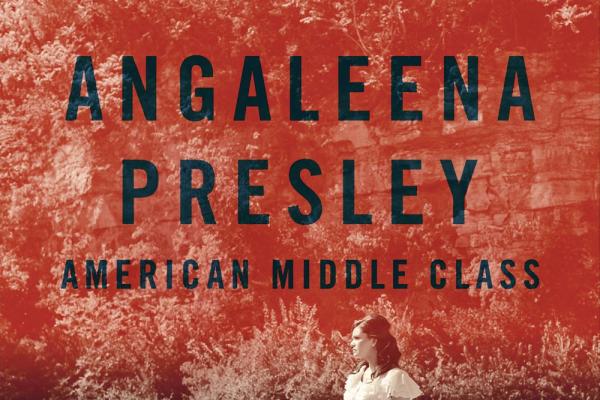OUT WHERE Kentucky meets West Virginia, you’ll find one of America’s cultural seedbeds, where Scotch-Irish immigrant traditions took root in the New World. But on her debut album, American Middle Class, singer-songwriter Angaleena Presley, a daughter of the Kentucky mountains (and no kin to The King), paints a heartbreaking picture of what Appalachia has become.
The people of this region were once mostly self-sufficient subsistence farmers. In the early 20th century, they were drafted into the coal mines but brought their pride and independence with them, waging often-bloody battles to establish the United Mine Workers of America. For over a century now, the region’s economic fate has been hostage to the ups and downs of the energy market. As a result, the coal fields have become one of the poorest parts of the country.
The music that flourished in this region became, along with that of low-country African Americans, one of the two great pillars of American popular music. So many country music greats have come from here that Kentucky has a “Country Music Highway Museum” just to honor all the stars (Loretta Lynn, Ricky Skaggs, Billy Ray Cyrus, Keith Whitley, and many others) born along U.S. 23.
In short, this part of Appalachia is sort of the Mississippi Delta for white people: A place of dire economic poverty and vast cultural riches, where the art and spirit of a people has found its most intense expression.
Angaleena Presley seems to know all this. The woman from Beauty, Ky., with the perfect country music name is a pure product of hardcore Appalachia. A miner’s daughter, during high school she would cut class, drive to the old house that Loretta Lynn wrote about in Coal Miner’s Daughter, and try to write songs.
Since then Presley has knocked around Nashville as a songwriter and a member of the Pistol Annies country girl group. Now comes American Middle Class, an intensely personal statement of love, loyalty, and loss, all about the place she calls home.
There is autobiography—two songs, “Knocked Up” and “Drunk,” Presley says, are mostly the short version of her first marriage—and a lot of sharp-eyed social documentary, only a little of it hailing the virtues of the proud, self-reliant mountaineer. The title track starts with a recording of Presley’s father talking about life in the mines. She sings “daddy never crossed the picket line, it was hard but we made it through” and goes on to praise “the hardworking God-loving members of the American middle class.”
But most of the strong stuff on this record is about the plague of drug abuse and despair that has swept the mountains in the past 15 years. As the coal jobs have left, they’ve often been replaced by disability payments and drug abuse. When Presley looks around her hometown now (in “Dry County Blues”), she sees, “a car full of pillbillies looking to score ... [and] good Christian women locking their front doors, praying their daughters don’t turn into meth whores.” In “Pain Pills” we meet a high school football hero who dies of an overdose, a strip-mine worker drinking on the job, and a woman running to the pill mill after getting out of jail.
Angaleena Presley doesn’t have any solutions for what ails Appalachia. So far, nobody does. And that’s not her job anyhow. What she does give us is a clear picture of what’s being lost, and at what cost. It’s an American tragedy, as if we needed another.

Got something to say about what you're reading? We value your feedback!
